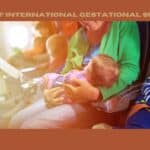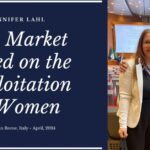For those who aren’t following the international human cloning debate, (although it sometimes feels like a traveling dog and pony show coming to a state near you) the Show Me state of Missouri is trying to become the next clone state if amendment 2 passes next month. Missouri is currently in a battle similar to that which California faced back in 2004 as Proposition 71 successfully strapped the golden state with $3 billion dollars in bond debt. As I write this article, I am preparing to travel to Missouri this week and weave my way across the state speaking out on human cloning research.
The Missouri campaign against human cloning mirrors many of the strategies which were attempted out west. First, opponents from both states called it what it is–Human Cloning. Both states are up against big money and supporters of the legislation who want voters to believe this is a debate over leftover, spare embryos which are just going to be thrown away. Wrong. The researchers themselves will tell you, often quite candidly, that they want fresh eggs, from young women–and lots of them to make disease specific clonal embryos for their specific research. Second, the hype for cures just around the corner for every major disease is rampant in these debates. The television ads are running in Missouri, pulling on the heart strings of voters and preying on the fears of those who are sick and desperate for real cures. Embryo stem research is put on the pedestal of the cure all for everything–the Holy Grail of stem cells. Once again, candid honesty tells us that cures–if at all–are years away. And finally, both states have opponents of their legislation who seek to form common cause with groups and individuals outside of the traditional conservative pro life fray. For example, the Farm Bureau in Missouri just came out against amendment 2. There is much to be leery about with this type of legislation. Feminists are outraged by big biotech’s raping of the female body. Environmentalists are concerned about harnessing human engineering and unleashing harmful technologies into an unsuspecting earth. Social justice concerns are prevalent as worries about producing expensive therapies that only the rich will enjoy, but will be developed on the backs of the poor. And always, if you follow the money, many people get a queasy feeling. People wonder about the ethics of squandering millions and billions of dollars on speculative research while millions of Americans don’t even have basic health care coverage.
There is one thing those working the Missouri campaign have that California didn’t have. Missourians against human cloning have California in their rear view mirror. Voters, and specifically taxpayers in Missouri can look at the test case out west and learn from the Golden state before they pour their precious resources down a big black hole. In California we were told just last week that cures are 10 years away.
James Sherley, an associate professor of biological engineering at MIT said, “In the end, when the public says no to the use of human embryos for research, stem cell research in America will not die. It will just get better from increased research effort on adult stem cells and new approaches to convert adult stem cells, but without the use of human embryos. And when there is good science, good funding and good investment will soon follow, as always.”
Author Profile

- Jennifer Lahl, MA, BSN, RN, is founder and president of The Center for Bioethics and Culture Network. Lahl couples her 25 years of experience as a pediatric critical care nurse, a hospital administrator, and a senior-level nursing manager with a deep passion to speak for those who have no voice. Lahl’s writings have appeared in various publications including Cambridge University Press, the San Francisco Chronicle, the Dallas Morning News, and the American Journal of Bioethics. As a field expert, she is routinely interviewed on radio and television including ABC, CBS, PBS, and NPR. She is also called upon to speak alongside lawmakers and members of the scientific community, even being invited to speak to members of the European Parliament in Brussels to address issues of egg trafficking; she has three times addressed the United Nations during the Commission on the Status of Women on egg and womb trafficking.
Latest entries
 infertilityApril 23, 2024The Rise of International Gestational Surrogacy in the U.S.
infertilityApril 23, 2024The Rise of International Gestational Surrogacy in the U.S. Assisted Reproductive TechnologyApril 16, 2024Founder Jennifer Lahl’s Speech on Surrogacy to the Casablanca Declaration
Assisted Reproductive TechnologyApril 16, 2024Founder Jennifer Lahl’s Speech on Surrogacy to the Casablanca Declaration #BigFertilityFebruary 27, 2024No, Alabama Didn’t Ban IVF
#BigFertilityFebruary 27, 2024No, Alabama Didn’t Ban IVF ArticleSeptember 25, 2023The Little Engine That Could
ArticleSeptember 25, 2023The Little Engine That Could

